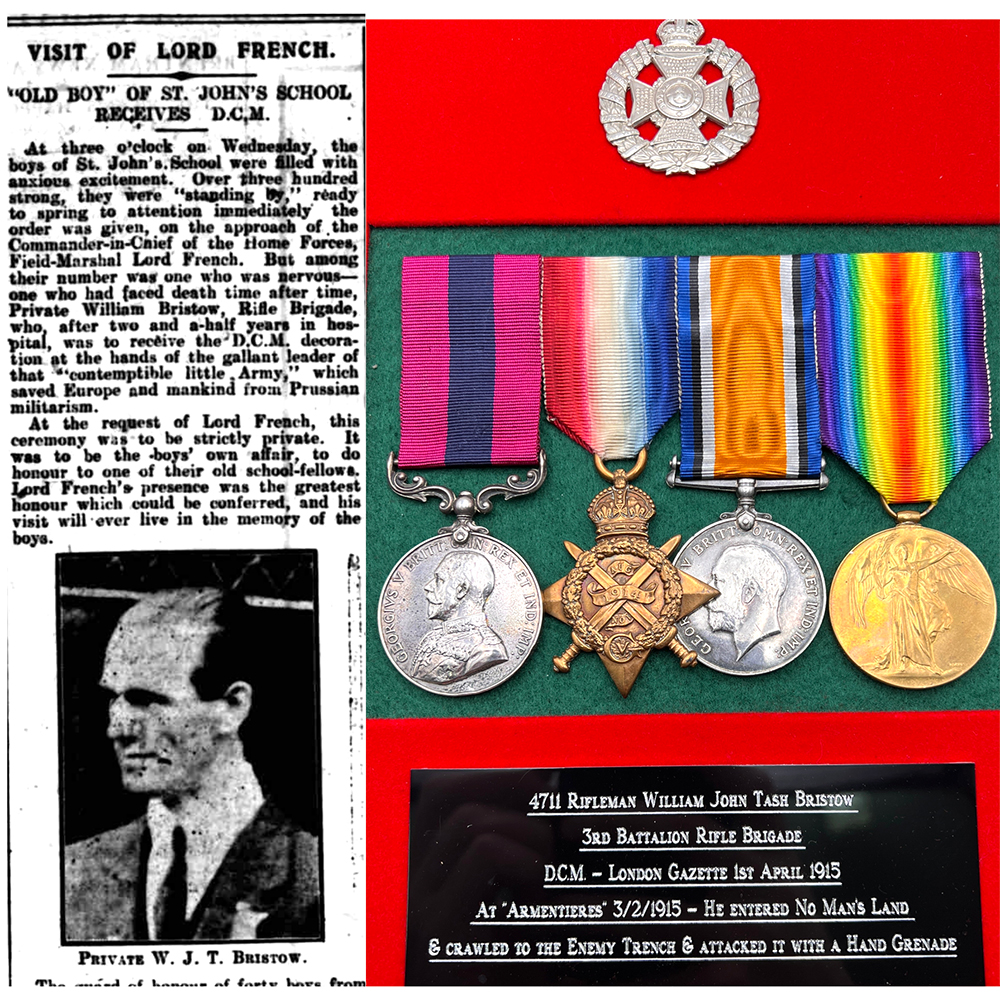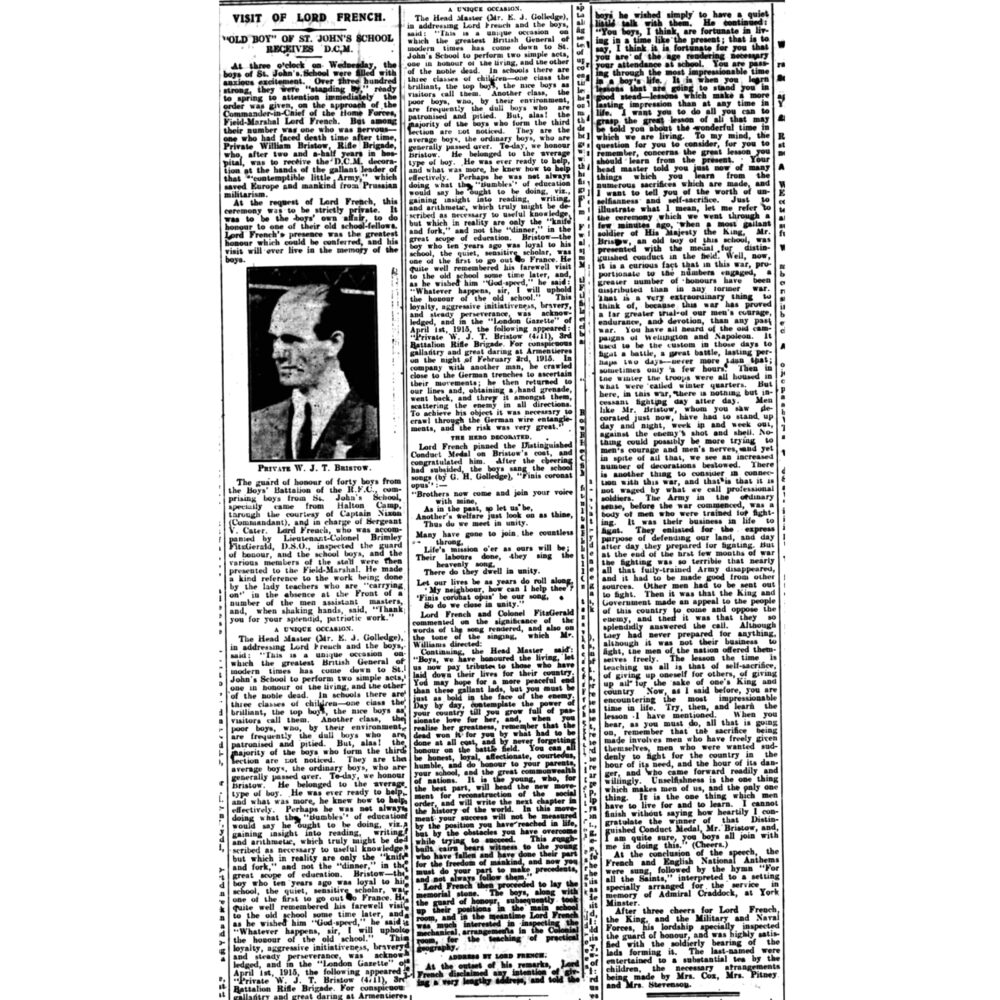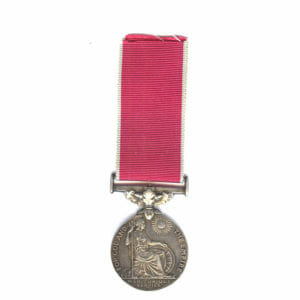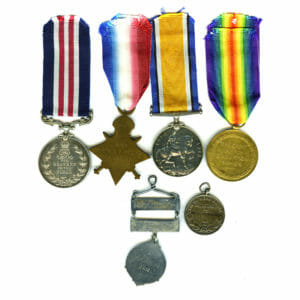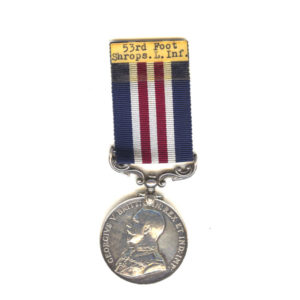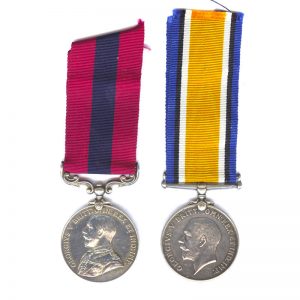Description
Distinguished Conduct Medal, 1914 Star, British War Medal (Erased) and Victory Medal, Rifleman W.J.T. Bristow, 3rd Battalion Rifle Brigade.
A stunning display of gallantry, With just one other man at Amentieres on 3rd February 1915, these two men were disappointed in the stagnation of the war and were eager to take the fight to the enemy, so they set off at night time and crawled all the way to the German Trenches, once they found it they crawled back home, arming themselves with Hand Grenades they once again set off crawling through German wire entanglement all the way outside the German Trenches. They then threw in their hand grenades doing significant damage and scattering the force in all directions. If they had been caught there was little chance of survival, only 2 men against an entire German force.
His gallant friend Albert Edward Holton, who earned the DCM with him, did not make it through the war and died of wounds on 14th September 1915 in France.
Similarly Bristow was invalided home and had to spend 2.5 years recovering from his wounds receiving a medical discharge.
When Field Marshal Lord French heard of the event done by one his “Contemptible Little Army”, he took it upon himself to present the medal personally.
Bristow was an Old Boy of St Johns School and Field Marshal French brought the medal with him to a visit there with the plan to present him this DCM in front of the entire school.
“Over 300 strong, were standing by ready to spring to attention immediately when the order was given, on the approach of the Commander in Chief of the Homes Forces, Field Marshal Lord French.
But among their number was one who was nervous – one who had faced death time after time, Private William Bristow, Rifle Brigade, who after 2 and a half years in hospital, was to receive the DCM decoration at the hands of the Gallant leader of That Contemptible Little Army, which saved Europe and mankind from Prussian Militarism.”
Later in December he was visited by Admiral Sims and Her Royal Highness Princess Louise, who handed him a certificate in front of a large gathering at his old school.
DCM Officially impressed: 4711 Pte W.J.T. Bristow. 3/Rif: Brig:”
1914 Star Officially impressed: 4711 Pte W.J. Bristow. Rif: Brig:”
British War Medal is an original example but with erased naming example likely for display purposes.
Victory Medal Officially impressed: “4711 Pte W.J.T. Bristow, Rif: Brig:”
Medals with general wear some pitting to DCM, group display mounted in frame with a cap badge and inscribed info plaque.
Offical entry in the London Gazette, 10th March 1915, with Citation on 1st Apri 1915:
“For conspicuous gallantry at Armentieres on the 3rd February 1915.
With another man he crawled close to the German Trenches to ascertain the enemy’s movements. He then returned to his lines and obtaining a hand grenade went back and threw it amongst them scattering the enemy in all directions.
To achieve this objective it was necessary to crawl through the German wire entanglement and the risk was very great.”
The Rifle Brigade Regimental History, 1914-1918 Volume 1 states:
“With the 3rd Battalion, the most important occurrence was a move from Porte Egal Farm to ‘a very bad bit of trenches full of water near Houplines.’
Riflemen WJT Bristow and AE Holton, perhaps as a protest against the stagnation of the war in their sector, crawled out one night (3rd Feb) through the enemy wire and scattered a German working party with hand grenades, both winning the Distinguished Conduct Medal.”
The award of his medal an unusual honour given by Lord French:
Mr William John Tash Bristow, was born in Bromley, Kent, circa 1894.
The son of John and Prscilla Bristow (nee Tash).
He grew up and was educated at St John’s School in Ealing.
He had enlisted in the Rifle Brigade at about 18, on 30th July 1912.
As an “Old Contemptible” and regular army soldier he was stationed with the 3rd Battalion Rifle Brigade in Cork, Ireland at the outbreak of War.
They returned hom eot Cambridge on 18th AUgust 1914.
They then embarked on the SS Lake Michigan on 8th September 1914 for war, arriving at St Nazaire in France on 10th September 1914.
The award of the DCM was almost immediate, no need to pass it up the chain given the circumstances.
The feat occured on 3rd February 1915, and the War Diary of 6-8th February recalls:
“Remained billeted at Chaple d’Armentieres, 4711 Rifleman W. Bristow and B431 Rifleman A Holton awarded the Distinguished Conduct Medal for acts of gallantry and devotion to duty in the field.”
Bristow was wounded and due to his wounds received a medical discharge on 21st April 1917.
Whilst back home in September 1917, Lord French visited to present him personally with this Distinguished Conduct Medal.
He married Louisa Nichols in Brenfot, Middlesex during 1923, and later died during 1939 at the age of 44 in Staines.
